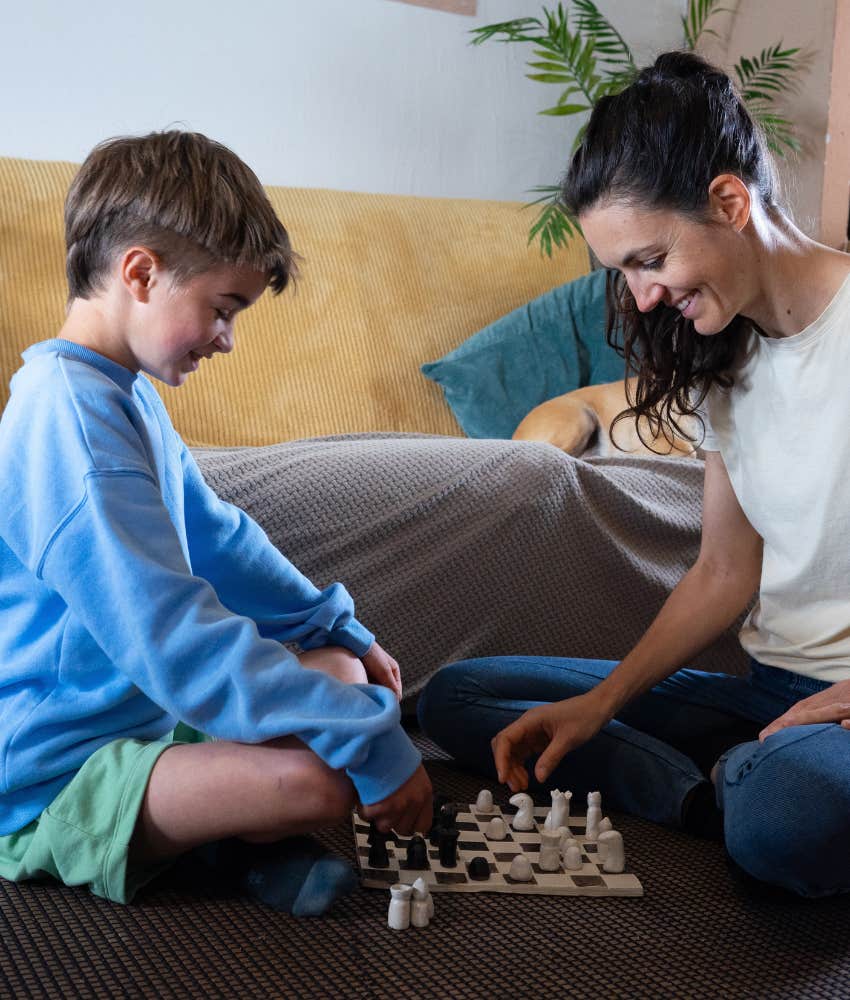Mom Shares 3 Things She Does To Make Sure Her Kids Know That Not Everything Is About Them
She's determined not to raise entitled kids.
 Helena Lopes | Pexels
Helena Lopes | Pexels "What about meism" is on the rise, according to mom Brenden Cook. She argued that parents need to be vigilant in teaching their kids that not everything revolves around them. But how? Cook shared on TikTok that she stresses three important lessons to make sure that her kids know not everything is about them.
"It might sound harsh, but I think it's very crucial that our children understand that not everything, every situation, every environment is tailored to their wants and their needs," Cook said. "Everybody these days is thinking that every situation is meant for them, and it's just not."
The mom shared 3 things she does to make sure her kids know that not everything is about them:
1. She tells them, 'their emotions do not dictate the emotional climate of the household'
 Ron Lach | Pexels
Ron Lach | Pexels
When Cook's children are upset, frustrated, or angry, she helps them deal with their emotions. If they want to talk, figure out a way to solve the problem, or do something to feel better, she is there for them. However, she lets them know that their feelings are theirs and that no one else in the house has to share them.
The same goes for Cook and her husband. "Our emotions also don't dictate the emotional climate of the household," she said. Cook recalled the first time her husband came back from work upset. He warned her he was angry, but that it was not her fault. That, she explained, is what emotional maturity looks like.
Child psychology experts Erin and David Walsh explained that one of the best ways to teach a child empathy is to lead by example. "Children who feel safe, secure, and loved are eventually more sensitive to others' emotional needs," they wrote. Cook and her husband are doing the right thing. They model emotional regulation with each other and love and guide their children through their own emotions.
2. She doesn't always let them win
For your child to achieve success, Cook explained, they need to understand that it takes effort. "If we are playing any type of game, a game outside, racing, board games," she said, "if she does not put forth any type of effort, she's not going to win."
Not only is it important for kids to learn about dedication, she argued, but that winning is not everything. Losing often comes with a lesson, and she wants them to learn that.
Education expert Tiffany Sauber Millacci, Ph.D., also believes in the need to teach kids that a good attempt can matter more than results. "Parents who praise their child's effort instead of their performance have a significant effect on their children's academic potential," she wrote. Admiring their work instead of focusing only on the outcome teaches them to strive for their best.
3. She teaches them about taking turns
 Aaaarianne | Shutterstock
Aaaarianne | Shutterstock
Cook explained that if she's in the car with her daughter and the little girl wants to listen to a "Trolls" song, she can, and they will both enjoy it. But after that song plays, Cook stressed that it's her turn to choose. "Same thing goes with TV," she said.
According to social worker Michael Vallejo, teaching kids how to take turns is integral in teaching them the greater lesson of patience. He said, "Whether you are taking turns holding a toy or another activity, this will help teach kids that sometimes it's okay to wait for fun things."
Life is hard. It's normal for parents to want to indulge their kids and see them happy all the time, but it's not realistic. Cook is right. Social media has made it very easy for everyone, adults and kids included, to get stuck in their own bubble. Learning to think critically isn't just a skill that magically appears. Kids learn it by understanding that there is a wide world around them and not everyone lives like they do.
Matt Machado is a writer studying journalism at the University of Central Florida. He covers relationships, psychology, celebrities, pop culture, and human interest topics.

